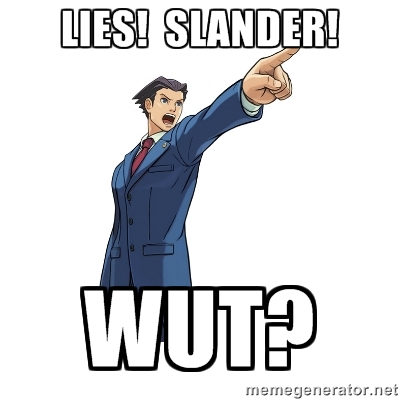
Do you know there is a Special Court for the Monarchies?
Not published yet ago Juhn TaoWe often hear about the Rule of Law. The doctrine of Rule of Law means that no one is above the law. Every one of us regardless of our social status is subjected to the law of the land.

However, do you know that before 1993, the Yang di-Pertuan Agong and the Rulers of States have absolute immunity from legal proceedings?
They cannot be sued or be charged in the courts for things that they have done personally. However, this immunity did not cover their official acts such as acts done on the advice of the Government (Stephen Kalong Ningkan v Tun Abang Haji Openg & Tawi SLI [1976] MLJ 46). His act must be deemed to be the act of the Government and Government can be sued in courts.
But things have changed because of the “Gomez Incident”…

Storytime!
One of the sons of the then Sultan of Johor, Tunku Majid, who was a member of the Johor Hockey Team allegedly assaulted his opponent’s goalkeeper after losing a hockey match to Perak hockey team. Tunku Majid was suspended for 5 years by the Malaysian Hockey Confederation. The Sultan was unhappy about the suspension and exerted pressure on the state education department to issue orders to schools hockey teams in Johor to withdraw from various competitions organised by or associated with the Malaysian Hockey Confederation.
Douglas Gomez, the hockey coach of Maktab Sultan Abu Bakar voiced out his dissatisfaction and called for the resignation of all Johor Hockey Association office holders. Subsequently, Gomez was summoned to the Palace of Johor Ruler. The next day, Gomez sought medical treatment at a private clinic for facial cuts and bruises and shortly after that, filed a police report accusing the Sultan of Johor had assaulted him at the Palace.
This lead to the 1993 amendment on the Federal Constitution in which the royal legal immunity in relation to things done in their personal capacity in both civil and criminal proceedings was removed and the Special Court was established.
Now YDPA and Rulers can be liable personally...but in Special Court!

So now Article 32 of the Federal Constitution and Article 181(2) of the Federal Constitution provides that the YDPA and the Rulers of States can be sued or charged in their personal capacity but only in Special Court, meaning that their private act which is against the law can be brought to the Special Court. After all, they are still Royals and they ought not to be brought to ordinary courts like anyone else.
Special Court has been created by Article 182 of the Federal Constitution to try criminal offences committed by YDPA or the Rulers and all civil cases involving YDPA or the Rulers.
The panel of the Special Court shall consist of 5 members:
- Chief Justice of the Federal Court, who will be the chairman;
- Chief Judge of the High Court of Malaya;
- Chief Judge of the High Court of Sabah and Sarawak; and
- Two other persons who hold or have held office as a judge of the Federal Court or High Court appointed by the Conference of Rulers.
However, a pre-condition has to be satisfied in order to start an action against YDPA and the Rulers in the Special Court.
Article 183 of the Federal Constitution stipulated that the Attorney General of Malaysia shall personally give the consent before action against YDPA and the Rulers can be brought in the Special Court.
The decision made by the Special Court will be final and conclusive and cannot be challenged in any court on any ground. In other words, there is no opportunity to appeal (Article 182(6) of the Federal Constitution).
Only Malaysian can bring an action against YDPA or Rulers in Special Court!

In the very first case heard by the Special Court – Faridah Begum bte Abdullah v Sultan Haji Ahmad Shah (1996) 1 MLJ 617, the Special Court held that Faridah had no right to sue the Sultan of Pahang for defamation under Article 182 of the Federal Consideration because she was a Singaporean. Only the citizens of Malaysia has the right to sue the YDPA and Rulers in Special Court.
The merits of the case were not heard by the Special Court because of the lack of locus standi to sue the Sultan of Pahang.
The very first Malay Ruler to be found liable in Special Court goes to…
The Yang di-Pertuan Besar of Negeri Sembilan, Tuanku Ja’afar Tuanku Abdul Rahman!
The Special Court in 2008 had ruled against the Yang di-Pertuan Besar of Negeri Sembilan for not paying the debt owed to Standard Chartered Bank and ordered Tuanku Ja’afar to pay for nearly RM 3.5 million to the bank.
Everyone is equal before the law in order to achieve fairness and impartiality in administering justice. No one shall be above the law. This is the spirit of the Rule of Law.
Vir sapit qui pauca loquitur